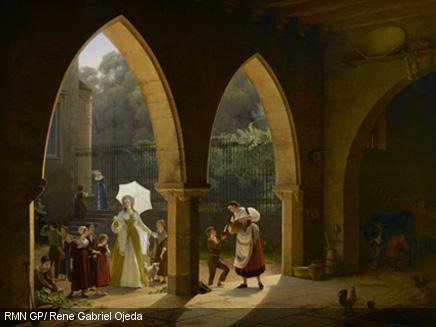Madame Elisabeth
dal 26/4/2013 al 20/7/2013
Segnalato da
26/4/2013
Madame Elisabeth
Chateau de Versailles, Versailles
Une princesse au destin tragique. 130 works and objects have been assembled, including paintings, drawings, furniture, objets d'art, costumes, jewellery, and archive plans and documents. This tribute to the young princess also offers an opportunity to learn about the art of 18th century gardens.

A little-known princess
Who was the real Madame Elisabeth, the princess who never married and lived at Versailles with her brother Louis XVI and Marie-Antoinette? When she turned nineteen, the King gave her the estate of Montreuil, a country house very close to the Palace of Versailles. Madame Elisabeth spent her days there in simple pursuits – music, science, painting, embroidery and games – surrounded by her friends. In 1789, when she was twenty-five years old, the age of majority for unmarried women, she was finally entitled to sleep at Montreuil. However, the events of the French Revolution dictated otherwise.
Rediscovering Madame Elisabeth’s life at Montreuil
This first major exhibition devoted to Madame Elisabeth is located in two areas of the estate. In the Residence, the furniture and objects with which the Princess surrounded herself have been assembled for the first time, conjuring up the lifestyle at Montreuil. The Orangery traces the life of the princess and the history of the estate.
An original exhibition space design
130 works and objects have been assembled, including paintings, drawings, furniture, objets d’art, costumes, jewellery, and archive plans and documents. They come from the Palace of Versailles and several public and private collections and some exhibits have never previously been displayed. The exhibition space design aims to recreate the intimate atmosphere of Montreuil during the era of Madame Elisabeth. A multi-sensory tour allows visitors to experience this directly via perfumes, music, handling materials, and listening to contemporary accounts.
The grounds and the art of 18th century gardens
This tribute to the young princess also offers an opportunity to learn about the art of 18th century gardens. The grounds are laid out in the English landscape garden style and have retained their original feel, with a grotto and groves of trees. Beds of aromatic and medicinal plants have been recreated in front of the Orangery, conjuring up the figure of Lemonnier, Madame Elisabeth’s physician, who cultivated plants on the estate. The walk between the two exhibition venues is enlivened with topiary representing animals.
Chateau de Versailles
Place d'Armes - Versailles
9 - 18,30, closed monday



